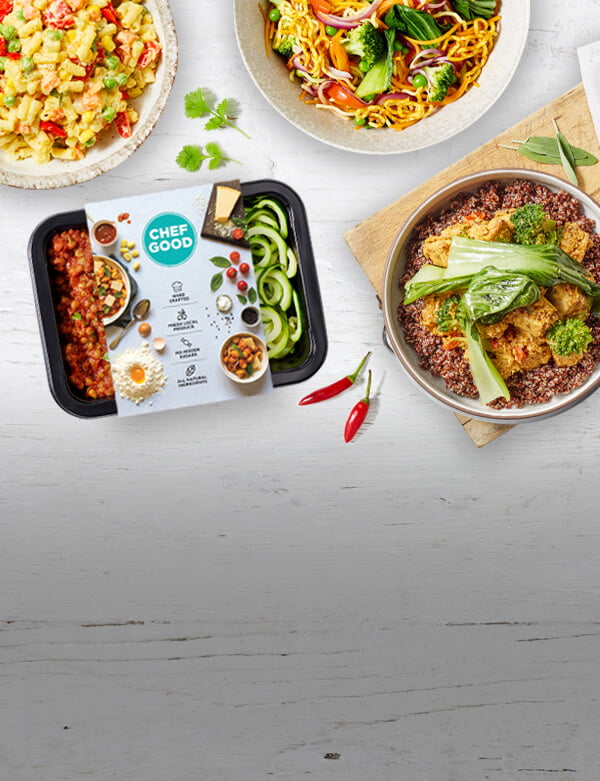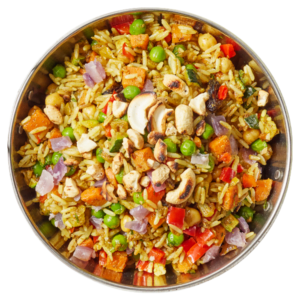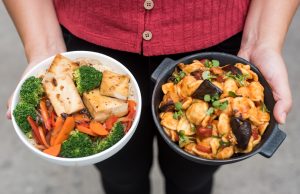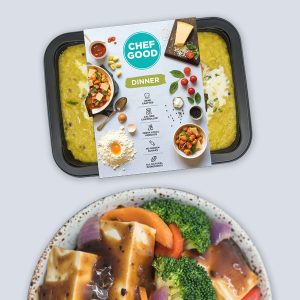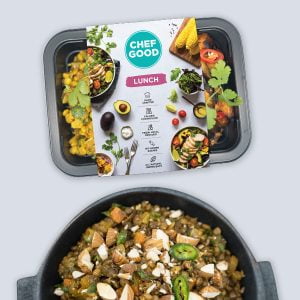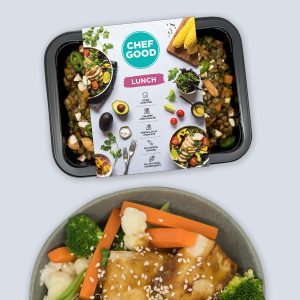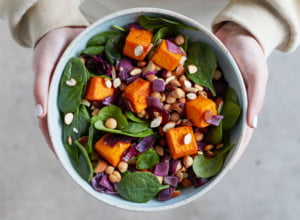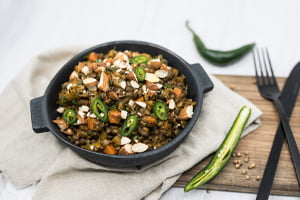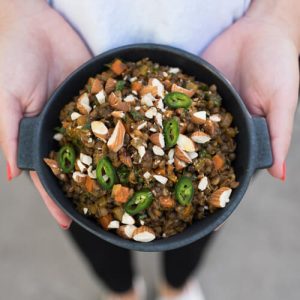From restaurant chains to grocery stores to social media feeds, the plant-based industry is flourishing and for good reason. More and more people (and not just new-age foodies!) are opting for a more plant-based diet whether for environmental reasons, ethical concerns, health benefits or weight loss. Whatever your motivation, the proof of the pudding is in the eating, with informed plant-based food choices serving up nourishment, taste, and better long-term health.
Personal Health Benefits
Unhealthy food choices are known to contribute to heart disease, obesity and type 2 diabetes. Eating more plant-based foods may help to improve overall health and wellbeing and reduce chronic disease. Often recommended by healthcare practitioners like physicians, nutritionists and dietitians.
Choosing to eat less processed foods and increasing your intake of whole foods can lead to better health and an improved sense of wellbeing. It starts with everyday food choices, shopping habits, reading labels, and nutritious meal plans. Making the right food choices packed with plant-based power, you can enjoy many long-term health benefits.
1. Reduces high blood pressure
High blood pressure (hypertension) is known to cause health issues, including chronic health problems like heart disease. There are various ways to reduce high blood pressure which includes reducing salt intake, alcohol intake and quitting smoking. Making informed daily food choices, including reading food labels on packaging, can also help contribute better food choices. Choosing unprocessed whole plant foods with naturally less salt and additives over highly processed foods (with a long list of additives, preservatives, hidden salt and sugar) can significantly aid in reducing blood pressure. Sufferers of high blood pressure can lower their risk by avoiding processed foods like fast-food takeaways, baked items and savoury snacks, often riddled with hidden salt.
2. Lowers the risk of heart disease
Plants naturally have less saturated fats compared to animal products. Vegan diets may help improve heart health and lower the risk of cardiovascular disease. Saturated fats are found in beef, lamb, butter, cheese and high-fat dairy products. Eating saturated fats increases cholesterol, which increases your risk of heart disease and stroke. Cholesterol is only found in animal products, not plants. Unhealthy cholesterol hardens and blocks arteries from the heart which can potentially cause a heart attack or stroke.
3. Reduces the risk of type 2 diabetes
Vegan diets also help to keep blood sugar levels in check, helping to lower the risk of type 2 diabetes, a chronic disease. A well-rounded plant based diet is also high in fibre. Besides helping to reduce bad cholesterol, filling up on fibre is a healthy way to control blood sugar. Eating soluble fibre (found in plant foods like apples, beans and oatmeal) can also help reduce dangerous visceral belly fat — a measure of obesity. Fibre also promotes good bowel health, reduces the risk of cancer as well as heart disease. The body reacts differently to unrefined foods compared to refined foods — unrefined foods are high in fibre and don’t require insulin to digest — unrefined plant foods are far less likely to cause a spike in blood sugar.
4. Helps to reduce inflammation
Inflammation is your body’s natural response to injury where the blood vessels around the injured area expand to bring more oxygen, nutrients and antioxidants to promote healing. So not all inflammation in your body is a problem. Some forms of inflammation can cause pain and discomfort, from ailments like arthritis, IBS and even asthma. For some people, certain foods bring on types of joint pain, discomfort, allergies and even headaches. This may be caused by inflammation. Other foods — like many plant foods — do the opposite; plant foods can reduce inflammation. Leafy greens, tomatoes, oranges and blueberries are all naturally high in antioxidants, sending inflammation blockers. Plant foods known for their antioxidant properties are naturally anti-inflammatory. Even if you’re not ready to commit to a 100% vegan diet lifestyle, just cutting back on red meat, dairy, soft drinks and fried food and upping your fruit and vegetable intake can help reduce inflammation and ease associated pain.
5. Helps lose weight or maintain a healthy weight
Vegan diets promote weight loss because they are effective in controlling calorie intake for several reasons.
- Bite-for-bite, plant food mouthfuls contain fewer calories than animal food mouthfuls.
- Whole food plant choices and menus are also lower risk choices compared to highly processed and refined food options, which are often riddled with hidden sugar and excessive salt (always be sure to read the packaging!).
- Plant foods are also full of fibre. Fibre is known to fill you up and keep you feeling full for longer because fibre triggers the release of appetite-reducing hormones.
- Highly processed carbs (found in desserts, white bread and sugary cereals) impair the work of insulin. When insulin functioning is impaired weight gain results. Unrefined fibre reduces insulin resistance and promotes a healthier body weight.
- Plant foods high in fibre are also low GI. Low GI foods release energy at a slower rate. High GI foods (which are refined highly processed foods and snacks) cause a spike in blood sugar. Low GI foods not only keep your energy levels more stable but also keep you feeling fuller for longer.
6. Sustainable eating is good for the environment
Sustainable eating is a philosophy that combines being kind to your body while being kind to our planet. Sustainable eating is all about choosing food for personal health benefits while being mindful of where food comes from. Sustainable eating is not a movement nor a buzzword, it’s a value system. While sustainable eating is a conscious choice, it need not be an extreme approach. Even if you’re not on an exclusively vegetarian diet, ideas you can consider to make more sustainable eating choices include:
- Choosing plant-based food over animal foods whenever possible, while ensuring a balanced and healthy diet.
- Reduce your meat consumption — even if just red meat. Beef especially is a major contributor to greenhouse gas emissions.
- While fish and seafood is a protein alternative to meat, pescatarians who load up on protein with fish should carefully select seafood that’s fished or farmed in environmentally sustainable ways.
- Buy local, which not only reduces the carbon footprint but also promotes local business and community connection and education.
- Eat thoughtfully. This means being mindful of where your food comes from and how it nourishes your body.
Where To Start? Food Included In A Plant-based Diet
To enjoy all the benefits of plant food, the starting point is to understand what foods and food groups are included in a vegetarian diet. Plant-based diets are defined as diets that include whole, minimally processed plant-based foods, excluding meat and animal products like fish and dairy products. Plant-based diets include vegan and vegetarian preferences.
There are variations in plant food lifestyles, as well as differences in meal plans borne out of plant food diets:
Vegans exclude all animal products and animal-derived products from their diet.
Vegetarians generally exclude meat, poultry and fish but may include other animal products like dairy and eggs.
Pescatarians include fish and dairy products but exclude meat and poultry.
Flexitarians are another growing group who choose to eat fewer animal products and red meat as a way of life, opting for more plant-based alternatives.
Today, following a plant-based diet has never been as easy or tasty. The choices are limitless, and the information endless. With so many delicious substitutes for animal products, you don’t need to compromise on taste as you nourish your body with healthy whole-food natural plant-power goodness.
Plant-based Milk
Plant-based milk alternatives have been on the slow boil for many years but in recent years, the choices have frothed over. Varying in fat and natural sugar content, the benefits of various plant-based kinds of milk include calcium, vitamins, protein, iron, zinc, heart-healthy monounsaturated fats, and amino acids.
- Soy milk has similar levels of protein to cow’s milk but with much less saturated fat as well as antioxidant benefits. Soy milk can also be fortified with Vitamin D. (Safe sunlight is a major source of Vitamin D as well as fortified breakfast cereals and fortified oatmeal).
- Almond milk is low in calories, has zero saturated fats, and can also be fortified with Vitamin D.
- Oat milk is another smooth addition to coffee and tea, packed with calcium, Vitamin D, Vitamin A, and Vitamin B12.
- Coconut milk is a popular choice for smoothies, soups, baking and curries.
- Hemp milk is thick, creamy and has a nutty flavour, and can also help lower blood pressure.
- Sesame milk doubles up as a popular plant-based alternative for nut allergies and also contains protein and fibre.
- Flaxseed milk is also suitable for people with dairy and nut allergies, and is great for smoothies and coffee!
- Hazelnut milk with its nutty flavour is great for baking, smoothies and coffee.
- Pistachio milk is another tasty option, also great for baking, cooking and smoothies.
- Macadamia milk is nutty and creamy, delicious in lattes, coffees, desserts, and curries.
Plant-based Protein
Plant foods can also be an excellent source of dietary protein, omega-3 fatty acids and other essential nutrients. Often with fewer calories than animal food alternatives, consider some of these plant proteins to mix into your meal plan.
- Soy products include tofu, edamame and tempeh.
- Legumes like lentils, chickpeas and black beans.
- Whole grains like quinoa and brown rice. Combine rice and beans together to serve up 7g of protein per cup. Whole wheat and whole grains are also healthier and more nutritious than refined grains.
- Vegetables including leafy greens like kale and broccoli are good protein sources, as well as mushrooms and potatoes. Added to a stir-fry or curry, these delicious veggies are an easy way to blend nutrition and taste.
- Nuts and spreads like peanuts and peanut butter, almonds, and hummus.
- Seeds like chia seeds, hemp, and sesame.
- Seitan is made by mixing wheat gluten with various spices. A protein-rich meat substitute offering 21g of protein in 1/3 of a cup. Although not suitable for people with celiac (gluten intolerance).
- Spirulina, an algae, and mycoprotein, a fungus, are also plant protein sources.
Fruit And Vegetables, Including Starchy Vegetables
Whole fruit and vegetables are known for a wide range of health benefits. Besides being packed with vitamins and fibre, some fruit and vegetables are also a source of protein, to be included in a balanced plant-based diet.
Leafy greens and vegetables are a good source of protein. Although as standalone foods, these vegetables are not sufficient as a source of protein however when combined with other protein-rich foods, these veggies are considered great protein choices as snacks or as additions to any vegetarian meal plan:
- Potatoes: 1 medium potato offers 8g of protein. Sweet potatoes have additional health benefits being high in antioxidants, rich in B vitamins, Vitamin C, calcium, iron, and other minerals
- Broccoli: A single medium stalk can serve up about 4g of protein
- Kale: Fad aside, a cup of kale gives you 2g of protein, legit
- Mushrooms: sizzling, in a broth or otherwise, 5 medium mushrooms provides 3g of protein and are also a very good source of Vitamin D

